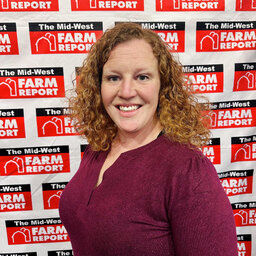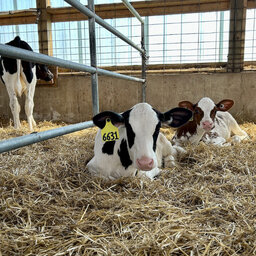Farm Retirement: How Much Do You Need?
When a farmer retires, they don’t just turn in the keys. Just like farming is a unique occupation, so is farm retirement and how you plan for it.
Folks with a ‘normal’ job, say a typical 9-to-5, may own their home or a few other assets, but a vast majority of their savings is liquid in the form of a 401K, retirement savings or bank accounts.
“With our farms, if we have excess capital, it’s usually put into land, machinery, animals, and continuing and growing the operation,” explains Jerad Nelson, financial advisor with Rural Mutual Insurance. “It does pose some challenges because you can have several million dollars worth of net worth, but only $2,000 in the bank. So, liquidity is our biggest concern for retirement and cash flow.”
In 1 playlist(s)
MID-WEST FARM REPORT - MADISON
Daily audio and podcasts from the Mid-West Farm Report Madison!Social links
Follow podcast
Recent clips

Meet The New FISC Director!
07:31

Precision Care Redefines The Modern Calf Barn
06:15

Data Center Land Fights Spread And War Disrupts Dairy Product Movement - Jan Prins
49:59
 MID-WEST FARM REPORT - MADISON
MID-WEST FARM REPORT - MADISON